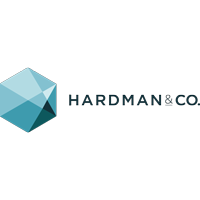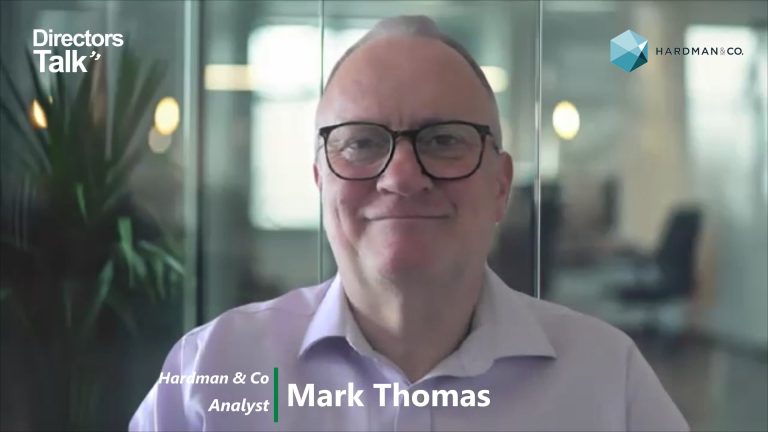Oakley Capital Investments Limited (LON:OCI) is the topic of conversation when Hardman and Co’s Analyst Mark Thomas caught up with DirectorsTalk for an exclusive interview.
Q1 Your recent report on OCI sits behind a disclaimer. What can you tell us about that?
A1: It is just the standard disclaimer that many investment companies have. In essence, for regulatory reasons, there are some countries (like the US) where the report should not be read. In the UK, private equity (PE) is not a simple asset class, and it should be looked at only by professional/qualified investors. Page 2 of the report gives all the details.
Q2: You called your recent piece, ‘2022: NAV returns driven by EBITDA growth’, what can you tell us about that?
A2: In this note, we reviewed the recent results.
The January trading statement announced NAV (662p per share), the total NAV return (24%), NAV growth, with two thirds of the uplift coming EBITDA growth and multiple expansion accounting for just a third, investments (£271m), realisations (£244m), available finance, including cash (£210m), and commitments (£929m).
The detailed results announcement highlighted i) 2022 exits, on average, 70% above carrying value, ii) 22% investee company average earnings growth, iii) weighted average EV/EBITDA of 15.9x, below listed market levels, iii) a PEG ratio of 0.7x, and iv) >75% of deals were uncontested.
It adds value to its companies in all economic environments. Its five-year share price total return (196%) is the best out of all the AIC investment companies.
Q3: So, how did the investee companies deliver 22% EBITDA growth in challenging markets?
A3: Oakley Capital has focused on areas with structural growth prospects. It has tech-enabled businesses, accessing superior growth with scalable models and downside resilience. It also provides active operational, strategic and financial support to its investee companies. In particular, it adds value by improving the quality of earnings, digitalisation, leadership development, marketing, and facilitating and executing buy-and-build strategies.
OCI’s entrepreneurial network continues to grow, and it not only helps attract new deals but also helps portfolio companies with real experience. It is about taking good companies in attractive markets and optimising their value with support they cannot get as standalone entities. Real synergistic benefits are seen by both parties.
Q4: Your report shows a great deal of confidence in NAV, what gives you that confidence?
A4: The key point here is that, on average, it sees a 54% premium on exits. It mainly sells its businesses to other PE houses, and, after they have done all of their due diligence, and taking into account that they want to make returns on their investments, they are still willing to pay significantly higher ratings than the level at which Oakley had valued the businesses in its books. Now, part of that is the synergies and opportunities that the new PE backer will bring to the table, but it also gives great confidence that Oakley valuations are conservative.
Our note also highlights i) that it is value-driven by EBITDA growth, not rating, ii) the low PEG ratio compared with the market, iii) the relatively low, stable price earnings ratio, iv) the uplift in the price earnings ratio ratings only significant at exit, v) no incentive to inflate ratings, and vi) independent checks – but the real test is what others pay for the assets, and that is well above the carrying value in OCI’s books.
Q5: You highlighted how the underlying portfolio companies will cope with recession, what’s your conclusion?
A5: The key point here is that they back resilient, profitable businesses with sticky revenues. Our note goes into some detail looking at this.
Understanding the EBITDA growth in underlying companies is core to understanding OCI’s resilience. It is focused in structural growth sectors with recurring income streams, where they provide active operational, strategic and financial support, and expertise, to its investee companies. OCI’s entrepreneurial network helps them grow, transform their models and pick the right people.
In our note, we show a detailed chart of the exposure to current challenges. Inflation is the only risk likely to affect a number of companies, and, even with that, many of their investments offer customers low-cost alternatives in an environment where customers are looking to save costs, or they provide mission-critical services. The financial gearing has been very stable over the past five years, and OCI’s own liquidity and commitments are tightly controlled.
The bottom line is that, if you look at the NAV performance through COVID-19, OCI delivered market-beating resilience, and we are expecting mid-teen NAV growth in 2023.
Q6: And the risks?
A6: We believe the main risks investors are worried about are whether the NAV is real and whether it is sustainable; I have already covered both of these factors. While Oakley Capital’s costs are slightly above-average, post-expense returns are still market-beating. Sentiment towards the global economic cycle is likely to be adverse, even though outperformance has been delivered in downturns. OCI’s portfolio is concentrated, and we believe its permanent capital is right for private assets.










































